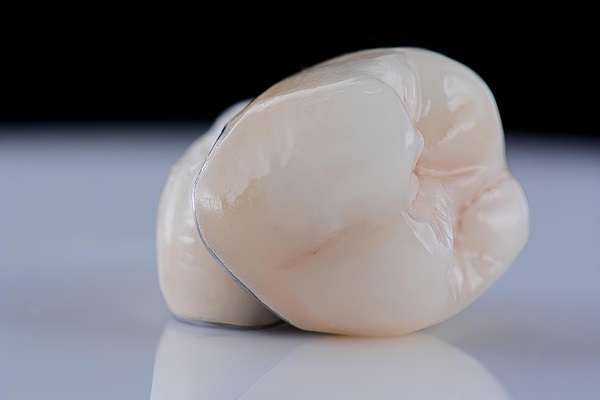3 Do’s and Don’ts of Dental Crown Care

A dental crown is a long-lasting dental restoration that helps restore the strength, appearance, and function of a severely damaged tooth. While these restorations are strong, proper dental crown care ensures their durability and prevents potential complications. The following guidelines can help you preserve your newly restored tooth and maintain your long-term oral health.
3 Do's of dental crown care
1. Practice good oral hygiene habits
A dental crown covers most of a tooth, acting similarly to a hat that covers the top of one's head. However, it does not completely remove the risk of tooth decay or gum disease. The natural tooth beneath the crown and the surrounding gum tissue require regular cleaning.
Similar to natural teeth, patients with a new crown should brush their teeth at least twice a day and floss once a day. They will need to pay special attention to the gumline around the crown to prevent plaque buildup and inflammation. Additionally, rinsing afterward with an antibacterial mouthwash can reduce bacteria that can lead to decay or infection.
2. Schedule regular dental visits
Routine dental visits allow the dentist to monitor the dental crown and the supporting tooth structure. They can identify potential issues when they first appear, such as:
- Looseness
- Poor crown placement
- Uneven wear and tear
- Increased sensitivity
- Cracks, chips, and other visible damage
- Misaligned bite
- Gum discoloration or recession
During these check-ups, the dentist can perform professional cleanings to remove plaque and tartar that brushing and flossing cannot remove.
3. Protect the crown from potential damage
Dental crowns are made from strong and durable materials. However, it is possible to damage them with excessive force. Fortunately, protective measures can reduce the risk of premature damage. For example, wearing a nightguard is beneficial for those who grind or clench their teeth, particularly while they sleep. Similarly, active individuals can wear a mouthguard during contact sports to protect their teeth and the surrounding tissues.
3 Don'ts of dental crown care
1. Ignore discomfort or changes
Patients with a new dental crown should not ignore any pain, increased sensitivity, or change in their bite. These symptoms may indicate an issue with the crown's fit, a structural problem with the underlying tooth, or complications involving the surrounding soft tissue. When patients schedule concerns with a dental professional promptly, they can prevent further damage to their crown, ensuring it continues to provide comfort and support.
2. Use teeth as tools
Using teeth to open bottles, tear packaging, or hold items places unnecessary stress on a dental crown and the surrounding natural teeth. This habit can cause the crown to loosen, fracture, or fall out. Natural teeth and dental restorations alike are designed for chewing food, not being used as tools.
3. Consume an unhealthy diet
Specific foods and beverages can shorten the life of a dental crown. Sticky foods, such as caramel or taffy, can pull at the crown and loosen it over time, leaving the underlying tooth and surrounding soft tissues vulnerable to decay. Hard foods may cause chips or cracks in the dental crown. Additionally, excessive consumption of sugary or acidic drinks increases the risk of decay in the natural tooth and surrounding teeth beneath the crown.
Learn more about dental crown care
A dental crown is a valuable restoration that requires thoughtful care to remain effective for as long as possible. Would you like more tips to care for your new dental crown? Call Alan S. Levy, DDS today to learn more or to schedule a follow-up appointment.
Request an appointment here: https://www.alanlevydds.com or call Alan S. Levy, DDS at (818) 668-9055 for an appointment in our Tarzana office.
Check out what others are saying about our dental services on Yelp: Dental Crowns and Dental Bridges in Tarzana, CA.
Related Posts
A dental bridge replaces one or more missing teeth by anchoring a lifelike “pontic” to neighboring teeth or implants. This fixed option restores chewing, speech clarity, and a natural-looking smile line. By filling the space, a dental bridge helps prevent drifting teeth, changes in bite, and excessive wear on remaining enamel. The material, whether porcelain…
A tooth replacement procedure is necessary when someone has lost their natural teeth. Teeth play an important role in maintaining good health and oral functions like chewing and speaking, so tooth loss can be quite devastating. Fortunately, there are many tooth replacement options available today to replace missing teeth.Options available for those who have missing…
Dental bone grafts restore structure and strength to the jawbone. Not only does this enhance the natural appearance of the face, but it can also create a strong foundation for dental implants. There are several types of dental bone grafts that an oral surgeon may recommend. Exploring the various types available can better prepare patients…
Dental implant surgery is a necessary procedure during dental implant treatment. It involves placing the implant, a metal post that supports the abutment and replacement tooth, into the jawbone. Understanding what the procedure involves and whether or not the procedure is painful can help you prepare mentally and physically for undergoing the process.The experience with…
